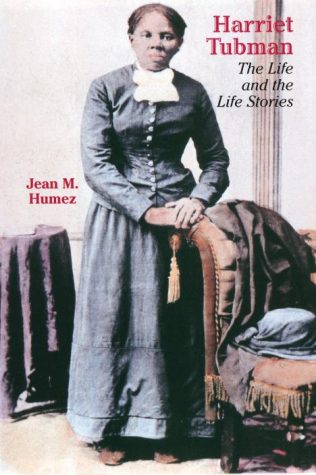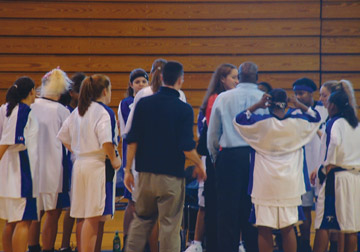Youth Vote Rocks Boston
November 12, 2003
A week after Rock the Vote, Quincy Market and Faneuil Hall still bustle with people coming through the halls and atriums.
Less than a week ago, most were outside, pressed against metal barriers, holding their signs and screaming for their candidate as Rock The Vote came to Boston. Inside the venerated Quincy Market, there was an eerie silence. A lone elderly man was slowly unpacking Bush-Cheney gear by the stairs that lead to the second floor and The Comedy Connection.
Where comedians normally perform their stand-up acts, the political press elite sat at computers doing theirs. Twelve television monitors were positioned around the room, broadcasting CNN live, with occasional cuts to workers setting up the debate room inside Faneuil Hall. Next to a poster of Buster Keaton was an enormous screen where the debate was projected.
Biding their time before the debate, the prime time journalists relaxed. TIME columnist Joe Klein was seen talking politics with CNN’s Judy Woodruff, who was overheard to say that she was only there as a “watcher” that night. The evening belonged to up-and-coming CNN anchor Anderson Cooper in his first outing as a moderator.
John Friedman of the leftwing weekly The Nation, one seat over from The Mass Media, quizzed Mass Media reporters on the results of the recent Harvard University poll that stated that most college students supported Bush and were conservative, appearing puzzled by the results.
The survey of 1202 students across the nation, done by Harvard University’s Institute of Politics (IOP), showed President George Bush’s approval rating remained unchanged from an April 2003 poll, holding high at 61% after briefly dipping to 53% in an ABC Washington Post poll. Those who disapproved in the October IOP poll, however, grew by 6% since then. The report concluded that the youth vote was “up for grabs.”
In the back of the room sat the collegiate press, behind the ABCNews team. Spotted was the New York Times of the campus press, The Harvard Crimson, as well as Northeastern University’s Northeastern News, Boston University’s Daily Free Press, the Tufts Daily, Suffolk University’s Journal, Boston College’s The Heights, and Emerson College’s The Berkeley Beacon. Even The Comment from Bridgewater State College made it out for the debate.
Some student reporters, a little in awe of journalists like Joe Klein and senior CNN political analyst Candy Crowley in the room, remarked how they felt like small fish in a very, very big pond.
Inside the debate room, each student in the audience had been picked at random and given a topic to ask a question about. An area was assigned to each candidate. Questions ranged from the Iraqi war to a candidate’s comments on Confederate flag-waving Southern voters. Others veered into boxers-or-briefs territory, with questions on whether a candidate had smoked pot – most either claimed they hadn’t or declined to answer – and which person they would feel most comfortable partying with and who “can shake their groove thing.”






















































